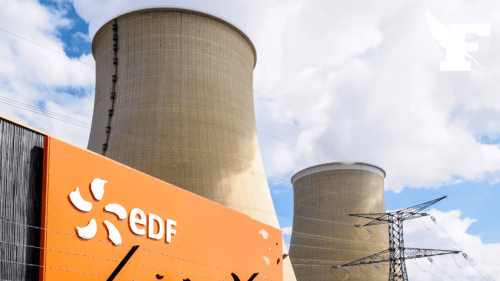Fuel shipments were halted in France on the third day of a national strike against pension reform, reigniting fears of a supply shortage, as the strike at refineries continued for 48 hours.
The French energy company, Total Energy, said that shipments of oil products from French sites were halted due to the strike today, Tuesday (February 7), according to information seen by the specialized energy platform, quoting Reuters.
However, the company confirmed that its service stations do not suffer from fuel shortages, and that its stocks in warehouses and service stations are “at a satisfactory level.”
“Our teams are being mobilized to meet demand, which could be stronger than usual, and additional logistical means are in place, if required,” the company said.
Total Energy employees strike
The management of Total Energy announced the strike of 56% of the “morning shift workers” in its refineries and depots on this new day of action against the pension reform.
While the General Confederation of Labor – for its part – provided a range of 75% to 100% depending on the locations.
The company said: “Out of 301 morning shifts at all our refinery and depot sites, 56% (or 169 people) were on strike,” according to BFMTV.
The General Confederation of Labor counted 75% of the strikers in the Lamed biofuel refinery, 87% in the Normandy refinery – the largest in France -, 90% in the Dong refinery, and 100% of the strikers in the Flanders fuel depot.
At Esso, a subsidiary of US ExxonMobil, about 75 percent of the workforce at the Voss site were on strike, blocking deliveries, while the Port Jerome site was operating normally, a UGTT spokesman said.
Fuel prices in France
This new strike comes amid the rise in fuel prices in France since the beginning of this year (2023), after the end of the discounts offered by the government and Total Energy.
The data, provided by the government on January 30, revealed that fuel prices in France are rapidly approaching the 2 euro mark ($2.17) per liter, according to information seen by the specialized energy platform.
The average price per liter of diesel was €1,943 ($2.11), up €0.027 ($0.029) over a week, according to the latest figures from the French Environment Ministry, which cover the period January 21-27.
The average price of a liter of unleaded petrol was 1,910 euros ($2.08), but after a larger weekly increase of 0.036 euros ($0.039), according to BFM TV.
The government has earmarked a one-off €100 benefit for 2023 for citizens who use their cars to go to work, but so far, out of 10 million eligible people, only 3 million have applied.
Fuel allowance in France is available from 16 January to 28 February 2023 and must be requested via a form on the tax website.
Low electricity in France
In a related context, electricity production in France decreased by about 4,500 megawatts between Monday and Tuesday, which is equivalent to more than 4 nuclear reactors, but without causing a power outage.
Data from the French Electricity Company (EDF) also showed that the total electricity supply decreased by about 4%, or 2.9 gigawatts, due to reduced supplies in two nuclear reactors and many thermal plants, according to Reuters.
Nuclear capacity was reduced by 890 megawatts, and thermal plants were reduced by 2 gigawatts.
No outages were reported at hydroelectric stations, but the hydroelectric sector of EDF published a strike notice on Thursday (9 February).

Nuclear energy in France
For its part, the French Electricity Company “EDF” announced the extension of the outage at the “Baluel 1” reactor with a capacity of 1.3 GW in northern France until Wednesday (February 8), after the network was cut off following a defect in an electronic component last Sunday ( 5 February).
She added that the electronic component is necessary to operate the unit, and is located in the non-nuclear part of the facility, according to information monitored by the specialized energy platform, quoting Reuters.
The company said it is currently mobilizing teams and carrying out the necessary checks to allow the unit to be reconnected to the electrical network.
On Friday, February 3, nuclear energy production in France recorded a jump to its highest level in nearly a year, as there were 45 reactors in operation, which boosted production by more than 45 gigawatts (45 thousand and 360 megawatts), according to the transmission system operator. Electricity “RTE”.
However, this record production is still below the average production of the past 5 years by about 12%, due to the non-resumption of work on the rest of the reactors.
related topics..
Also read..

Leave a Reply